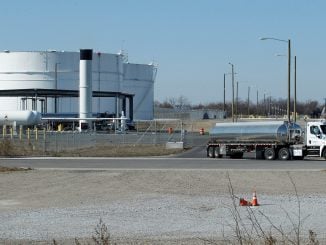RALEIGH — Americans received a bit of good economic news heading into the July 4th holiday, in the form of the U.S. Department of Labor’s June jobs report. The unemployment rate fell to 11.1% from 13.3%, and the economy regained 4.8 million jobs, further indicating that people are getting back to work and the economy may be improving at a faster clip than previously predicted.
Still, many experts say the apparent upturn could be hampered by a recent surge in coronavirus infections, which have forced many states to alter or completely halt their timelines for reopening, shattering any expectations for a real V-shaped recovery by year’s end.
One of the state’s top economists Dr. Michael L. Walden, who is the William Neal Reynolds Distinguished Professor at NC State University says that while we are in the midst of a slow recovery and seem to be turning the corner, it is all very much tied to Americans’ ability to contain the virus and hopefully find a vaccine by the end of the year.
On July 1, Walden released his semiannual economic forecast, The North Carolina Economic Outlook, in which he refers to the current crisis as the “mandated recession.” Even in the best-case scenario Walden says most experts agree a full recovery is several years off. “The bottom line of this report is that it is going to be 2023 before North Carolina’s aggregate production (GDP) reaches pre-virus levels and we really get back to normal,” he said. “Even in 2023, the state’s jobless rate will be more than 1 percentage point higher than in late 2019.”
The mandated recession of 2020 is different than any recession experienced by the country and while North Carolina traditionally recovers from recessions faster than most states, the remainder of this year will be a challenging one, because as Walden puts it, “everything has fallen off the cliff.”
Walden pointed to factors that will work against the state’s recovery, such as a higher share of workers with lower educational attainment in industries such as hospitality, personal services, and retailing that have all been hit hard by the pandemic. “If the percentage of occupations requiring person-to-person interactions contracts in the post-Covid-19 economy, then the state’s economy may suffer relatively more than the national economy.”
One the bright side, there are factors that could hasten North Carolina’s rebound relative to the rest of the nation. One is an increase in de-urbanization, a demographic and social process whereby people move from urban areas to rural areas. Walden says the virus increased levels of in-migration of households from other states to ours. “This movement could expand in the post-virus world, especially from highly dense northeast metro areas – like New York City and Philadelphia – that were particularly hard hit by the virus.
The local economy could also improve in the short term from a strong rebound in the state’s tourism sector if vacationers prefer shorter trips by road versus by plane.
All regions of North Carolina were hurt by the virus and the associated mandated recession. However, the least harmed were rural regions, where the reduction in employment during the height of the virus was 60% lower than for the state. Walden said the post-virus economic world may create new opportunities for these rural enclaves.
Increased opportunities for remote working, expanded use of cyber-generated delivery of both products and services, and an awareness that highly contagious viruses can be most problematic for denser environments may create a renewed interest in living and working in small towns and rural areas. But as Walden is quick to point out, the key to this shift is the development of high-speed, reliable internet service in those regions.
When asked how this year’s third quarter forecast compares to last year’s, Walden says there is no comparison. “This virus came out of the blue, no one was predicting a recession, and as a result we’ve had to greatly restrict our economy,” he said.
Compared to 2019, the state economy is expected to be 20% smaller at the end of this year. “After a huge reduction in aggregate economic production in the second quarter of the year, a rapid snapback is forecasted for the third quarter, followed by strong – but slower – growth in the fourth quarter,” Walden said, and added that while economic growth will continue next year, it will be at an even slower rate than this year.
In many ways, the coronavirus has forever changed the way everyone lives, and perhaps more importantly, how and where they work. Prior to the pandemic roughly 8% of Americans worked remotely whereas now it is at least double or triple that amount. “If 20% of people work from home indefinitely, that is going to change our national economy in huge ways,” Walden said. “Furthermore, if you are a business owner and you realize you can automate half the jobs you used to pay people to do and don’t have to pay robots, that is going to also change the workforce moving forward.”
Professor Walden concluded that although there is substantial uncertainty related to the economy following Covid-19, North Carolina seems to be as well positioned as any of its neighbors to deal with whatever lies ahead. “The state has a good mix of urban and rural, big and small, modern and traditional, plus a lower cost-of-living and both air and road access to major national markets,” he said. “Although the future may be hazy, North Carolina can be a bright light of opportunity.”


